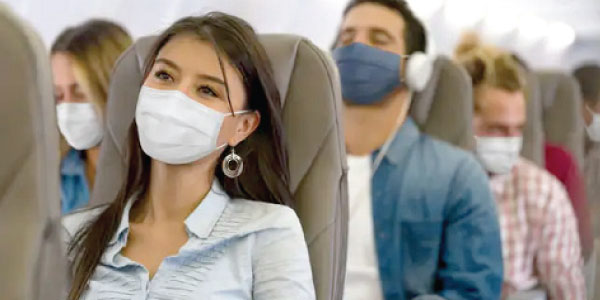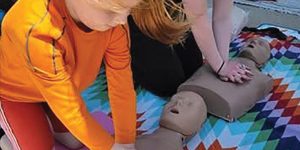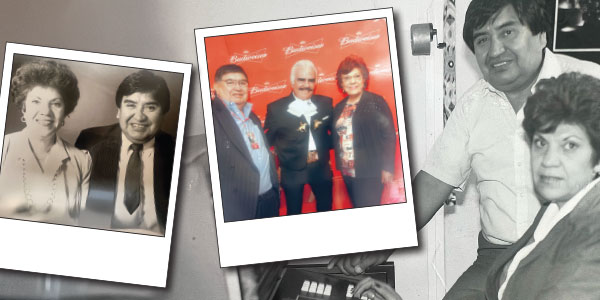
Commentary by Tere Siqueira
In a COVID-19 world, it is essential to learn a new way of traveling.
The World Travel and Tourism Council has developed an extensive range of protocols to cover the new normal for providers as diverse as airlines, shops, hotels and restaurants. Travelers must get used to following those protocols. If you plan to, say, visit a restaurant during your trip, be prepared to make a reservation, as most restaurants remain limited in the number of people they can serve.
If you are fully vaccinated, you might think you do not need to comply with the protocols. Yes, fully vaccinated travelers are less likely to get and spread COVID-19. Still, the U.S. Centers for Disease Control and Prevention (CDC) recommends that travelers still follow the CDC’s recommendations for traveling safely.
The CDC’s basic traveling recommendations include wearing a mask over your nose and mouth, staying 6 feet from others, avoiding crowds and washing your hands often or at least using hand sanitizer.
Some government agencies are not issuing recommendations; they are issuing requirements. The Transportation Security Administration (TSA), for example, requires masks be worn at airports, and on buses, trains and commercial flights.
If you question whether you should wear a mask, even though the TSA requires it, the answer is simple: use it, even if it causes some discomfort.
If you are traveling internationally, you should research if you will need to provide a negative polymerase chain reaction test (PCR) or quarantine upon arrival. Be aware that you will need to get tested to get back into the United States. Fortunately, most airports have PCR testing centers.
It is not only important to adapt to the new protocols/requirements you must follow, but to also get used to taking initiatives to protect yourself. When packing, antibacterial gel, soap and a pair of spare face masks should be in your suitcase.
If you are traveling with others in personal vehicles, like vans or trucks, try to sit in the back to keep a distance from whoever is at the wheel. Moreover, ask the driver to keep the windows open or deactivate the recirculation of air conditioning.
Before traveling and during the trip, try to stay healthy, even if you have been vaccinated. Eat, take your vitamins and exercise. Keeping your defenses high is essential to enjoying your trip to the fullest.
We all look forward to the time when it will no longer be necessary to use face masks or follow other protocols/requirements and the COVID-19 pandemic will be a memory. Fortunately, that time gets closer as more people are vaccinated. But until then, we all must get used to a new way to travel.
That is one of the prices we must pay if we want to move around safely in a COVID-19 world.
Acostúmbrate a una nueva forma de viajar
En un mundo con COVID-19, es fundamental aprender una nueva forma de viajar.
El Consejo Mundial de Viajes y Turismo ha desarrollado una amplia gama de protocolos para manejar la nueva normalidad para proveedores tan diversos como aerolíneas, tiendas, hoteles y restaurantes. Los viajeros deben acostumbrarse a seguir esos protocolos. Sí planea, por ejemplo, visitar un restaurante durante su viaje, esté preparado para hacer una reserva, ya que la mayoría de los restaurantes siguen siendo limitados en el número de personas que pueden atender.
Si está completamente vacunado, podría pensar que no necesita cumplir con los protocolos. Sí, los viajeros completamente vacunados tienen menos probabilidades de contraer y transmitir COVID-19. Aún así, los Centros para el Control y la Prevención de Enfermedades (CDC) de EE. UU. Recomiendan que los viajeros sigan las recomendaciones de los CDC para viajar de manera segura.
Las recomendaciones básicas de viaje de los CDC incluyen usar una máscara sobre la nariz y la boca, mantenerse a 6 pies de los demás, evitar las multitudes y lavarse las manos con frecuencia o al menos usar un desinfectante de manos.
Algunas agencias gubernamentales no están emitiendo recomendaciones; están emitiendo requisitos. La Administración de Seguridad del Transporte (TSA), por ejemplo, requiere que se usen máscaras en los aeropuertos y en los autobuses, trenes y vuelos comerciales.
Si te preguntas si debes usar una mascarilla durante tu viaje, la respuesta es simple: úsala, incluso si te causa algunas molestias.
Si viaja internacionalmente, debe investigar si deberá proporcionar una prueba (PCR) negativa o una cuarentena a su llegada. Tenga en cuenta que deberá hacerse la prueba para regresar a los Estados Unidos. Afortunadamente, la mayoría de los aeropuertos tienen centros de pruebas de PCR.
No sólo es importante adaptarse a los nuevos protocolos / requisitos que debes seguir, sino también acostumbrarte a tomar iniciativas para protegerte. Al empacar, debe llevar gel antibacterial, jabón y un par de Cubrebocas de repuesto en su maleta.
Si viaja con otras personas en vehículos personales, como camionetas o camiones, trate de sentarse en la parte de atrás para mantener una distancia de quien esté al volante. Además, solicite al conductor que mantenga las ventanillas abiertas o desactive la recirculación del aire acondicionado.
Antes de viajar y durante el viaje, trate de mantenerse saludable, incluso si ha sido vacunado. Come sano, toma tus vitaminas y haz ejercicio. Mantener las defensas altas es fundamental para disfrutar al máximo de tu viaje.
Todos esperamos con ansias el momento en que ya no sea necesario usar cubre bocas o seguir otros protocolos/requisitos y que la pandemia de COVID-19 sea sólo un recuerdo. Afortunadamente, ese momento se acerca a medida que se vacuna a mas personas. Pero hasta entonces, todos debemos acostumbrarnos a una nueva forma de viajar.
Ese es uno de los precios que debemos pagar si queremos movernos con seguridad en un mundo con COVID-19.









